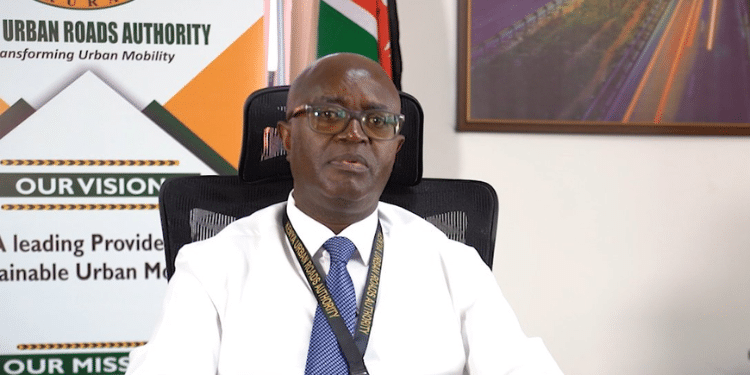Yvonne Apiyo Brandle Amolo, a Kenyan born has made headlines after breaking into the Switzerland political scene.
Amolo, who is of Luo origin, is currently serving her second term as a Member of Parliament (MP) in Switzerland.
She was elected as MP on Social Democratic Party Ticket.
Speaking on Citizen TV, she narrated her story right from how she travelled to Switzerland to becoming a MP.

How I Ended Up in Switzerland
Amolo said she fell in love with a Swiss man whom she married during her visit in Switzerland.
“He asked me to visit him in Switzerland, I had three months, and I didn’t stay that long. After a month he asked me to marry him, and I said yes, and the rest is history,” said Amolo.
The Divorce
However, Amolo revealed that they got divorced in 2009 after nine years of marriage.
Problems begun in 2012 when she got a letter from the immigration in Switzerland saying that they wanted to revoke her citizenship.
Nevertheless, Amolo decided to fight for her citizenship and filed a case against the immigration department in court.
“Kenya didn’t have a bilateral agreement with Switzerland that time, so I had to give up my Kenyan passport to be able to get Swiss One. So, if I had given out my Swiss passport like they were asking me to do I would be stateless,” she explained.
Additionally, she said her experience with the immigration department is what inspired her award-winning film dubbed “Not Swiss Made”.
“I was trying to talk about what I was going through; I could not tell the immigration department that what they were doing to me was bad because it would work against me,” she added.
Besides, she called the immigration after the film went viral to ask if they still wanted their passport back.
“I got about three lines of a letter saying ‘Miss Brandle Amolo you are allowed to keep your Swiss passport ” she said.
Also Read: Inspiring Story of Kenyans Who Scored E in KCSE Defying Odds
Amolo Joins Switzerland Politics
Furthermore, an official from the Social Democratic Party saw the film and said they needed Amolo for their party.
She explained that the official wondered how she was successfully fighting for her rights despite being an immigrant.
Consequently, they contacted the head of area in Amolo’s region and asked her to inquire whether she was interested in politics.
“I said no because politics in Kenya where I come from is different from this and I don’t understand what you people are doing. I will only do it if you put me through school and pay for it. I wanted to see how committed they were,” she narrated.
Afterwards, the Social Democratic Party put her through school as agreed.
“After school, they actually held their end of the bargain. They put me on the list, people voted for me, and I got in,” she said.
When asked about plans to get higher ranks in the Switzerland politics, Amolo agreed noting that was however not in a hurry.
“Yes, I would like to climb higher in my political career, but I have time, I believe we have strength in numbers. We might not have the finances, but we have the people,” she said.
Further, she emphasized that the power of the people has helped her in political career.
Amolo Career Journey
From 2018 November to date, she is serving as Research and Communications head Agrocity, femartivist, film producer and intercultural mediator.
She also doubles as a producer, director, script writer, camera, and actress at Jungle Queen Productions located in Zurich Area in Switzerland.
Furthermore, she is the owner and president of the Production company since 2013.
In addition, Amolo served as an Artist in Residence at Art Olympics Biennale, Kenyan Pavillion from May to December 2015.
Between January 2010 and December 2014, she served as a radio host at Radio LoRA Zurich.
Also Read: 18-year-old Kenyan Woman Wins Swedish Idol Competition
Also, Amolo was a dancer at Zurich Tanzt and a director and actress at Maxim Theater between 2013 and 2014.
She held several positions at Fabriktheater Rote Fabrik where she worked between November 2012 and August 2013.
Here she produced, directed, filmed, and acted in “Not Swiss Made” which won the audience award at Swiss Grenzen-los short film festival 2012, Zurich.
In 2012, she also worked as a producer/director at Ministry of Justice and Home Affairs in Switzerland.
She also worked as a radio host at Berlinale in 2011 for less than a year.
Education Background
Amolo holds a degree in Business Administration (B.B.A), International Marketing from United States International University (USIU) in Kenya.
Further, she holds a master’s degree in Intercultural Communication and a Ph.D. from Maastricht University Faculty of Arts and Social Sciences.
Swiss Governance Structure
Under Swiss federalism, state power is spread between the government, the cantons and the municipalities.
In addition, the national government only undertakes tasks that the cantons are unable to perform, or which require uniform regulation.
The government or Federal Council is the country’s executive branch and meets in the capital, Bern.
It comprises seven members who have equal powers and are each in charge of a ministry (also referred to as department).
Besides, the role of president rotates annually among the government members, and mainly entails representational duties.
Swiss parliament (or Federal Assembly) consists of two chambers with equal powers.
These are the House of Representatives (also referred to as National Council) and the Senate (Council of States).
Together, they make up the country’s legislative branch, and meet – as a rule – four times a year in Bern, for sessions lasting several weeks.
Also, the parliament enacts laws, draws up the budget, elects the members of the highest federal authorities and oversees the national government, the administration and the federal courts.
The 200 seats in the House of Representatives are assigned to the cantons in proportion to their population.
On the other hand, the Senate has 46 members: two for each canton, and one for each of the half-cantons.











































































